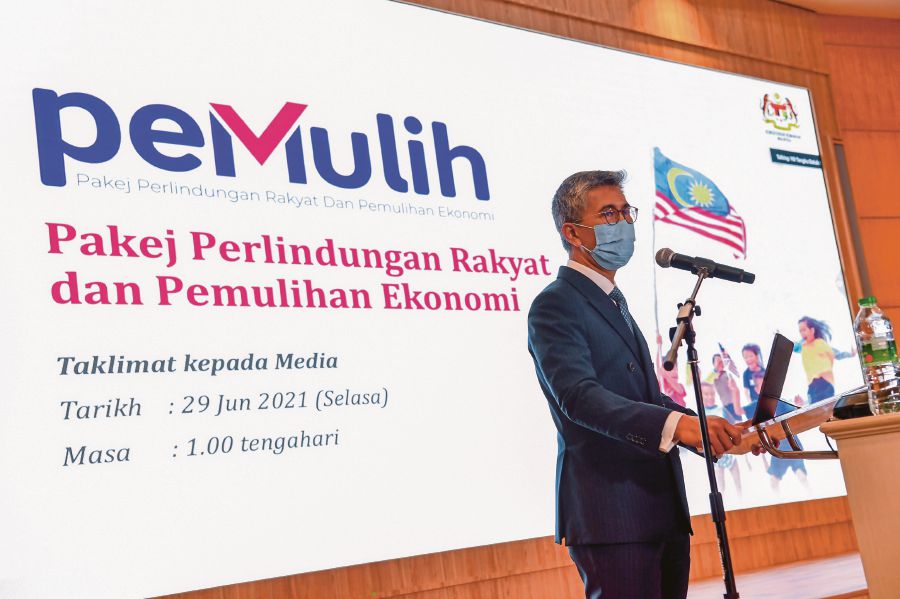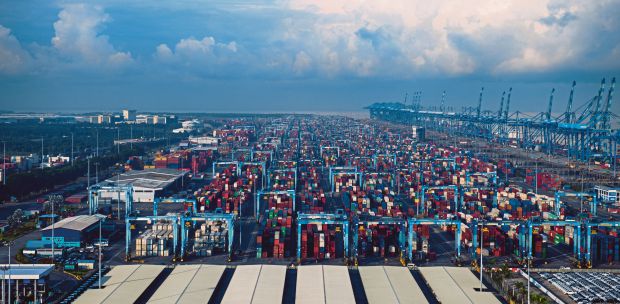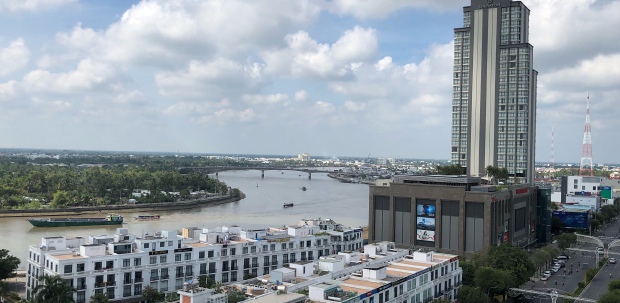Malaysian responses to the current economic crisis brought about by the Covid-19 pandemic are in line with the measures adopted by others.
They do fall in line with broad economic thoughts and practices in terms of maintaining aggregate demand and protecting employment, as well as providing basic assistance to the needy.
We can commend the leadership and the minister of finance, in particular, for exploring both fiscal and monetary instruments to support the various assistance under the various Prihatin, Penjana, Permai and Pemulih Programmes.
Billions of ringgit are made available, directly or otherwise, to society and enterprises to sustain the livelihood of all.
Their financing is largely through domestic debt as the governmental current account is in deficit. Consequently, the public sector debt ratio has increased to six per cent of total gross domestic product (GDP).
However, this fiscal support can never be enough because the trough and the hollowing out of income is large, and the bottom of the pit is currently not too discernible.
The rising daily cases of the new infections (over 5,000 on Friday, July 23) are quite telling, painting quite a grim outlook.
Already many are asking for more opening of the economy to all sectors, irrespective of essential and non-essential activities.
One activity considered as non-essential may surprisingly be the core element of another activity. The operators or consumers know what is essential and what is not.
The past 18 months have made many jobless and penniless. Many have exhausted their savings to maintain a decent livelihood. The withdrawal from the Employees Provident Fund is testimony to this visible pressure on society. If this persists, the room for policy space to manoeuvre and to sustain the economy will get narrower.
The government revenue is largely raised from economic activities. So, a depressed economy will raise a lower total revenue needed to support any recovery scheme.
Further reliance on fiscal policy means higher risk of public sector borrowing to be incurred over and above the six per cent of GDP level now being committed, which means a higher portion of debt servicing to be appropriated in future annual budgets.
In addition, the room to use monetary policy is also limited because monetary support depends on availability of total deposits in the banking system and the extent to which interest earnings have to be foregone or reduced. Who will bear the opportunity costs?
There is so much then as to how far both fiscal and monetary policies can be jointly deployed to support the total recovery initiatives.
This being the case, the engine of the economy has to be allowed to function, albeit a slow one initially, later to full steam when herd immunity is achieved.
Allow the economy to reopen soon to enable the wheel of private expenditures to turn, and in so doing, sustain and support income and employment levels of the community.
This will allow the production of goods and services to continue and income to circulate, providing a stronger basis of a more durable recovery in the months to come. Hopefully, the world economy improves too.
This has to be done without compromising the strict observance of standard operating procedures (SOP), physical distancing, and achieving vaccination targets as soon as possible.
To be sure, the economy has many positive advantages, such as a supportive corporate sector, an integrated manufacturing and services sector that is more advanced than many neighbouring countries, and a secure niche in the global supply chain. This cannot be allowed to be lost.
Many American and Japanese firms attest to this and with the right support from the government, they may incur more investments or at least do not leave our shores.
The government may reopen the economy by starting with these measures, such as, considering all activities as important and essential, allowing 50 per cent of employees to work, allowing some dining in for two in restaurants, allowing import of foreign workers for harvesting in plantations now that crude palm oil price is over RM4,000 per tonne, promoting "vaccination dividend" in the sense that those who have done two doses can travel inter-state, and allowing the use of Ivermectin among patients as a possible way to initially treat suspected patients, among other measures.
These are no ordinary times. Thus, extraordinary measures are justified, so long as strict SOP and social distancing measures are observed by all, at all times.
The writer is chairman of Malaysian Institute of Economic Research (MIER) and academic fellow, Universiti Sains Malaysia





